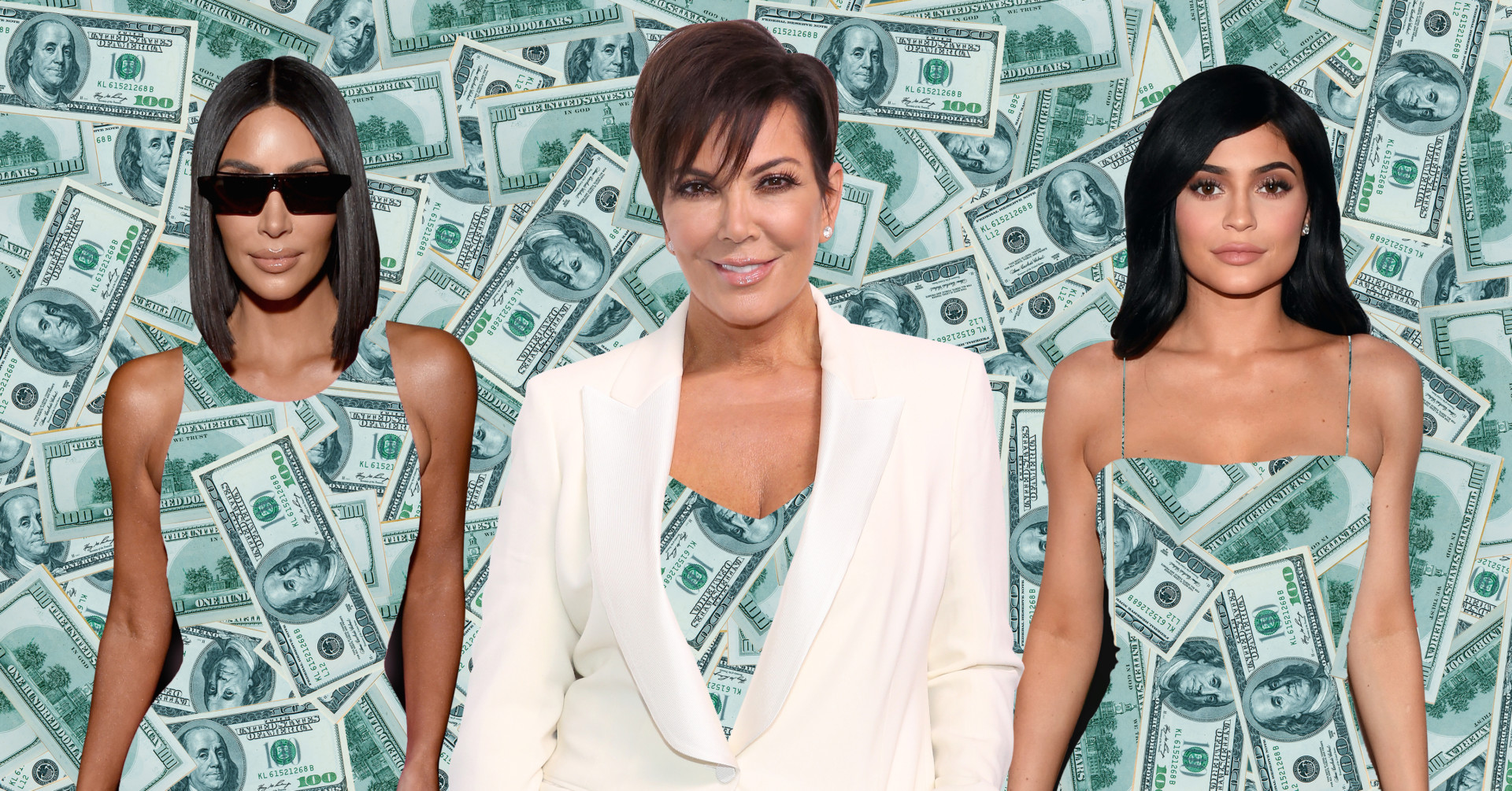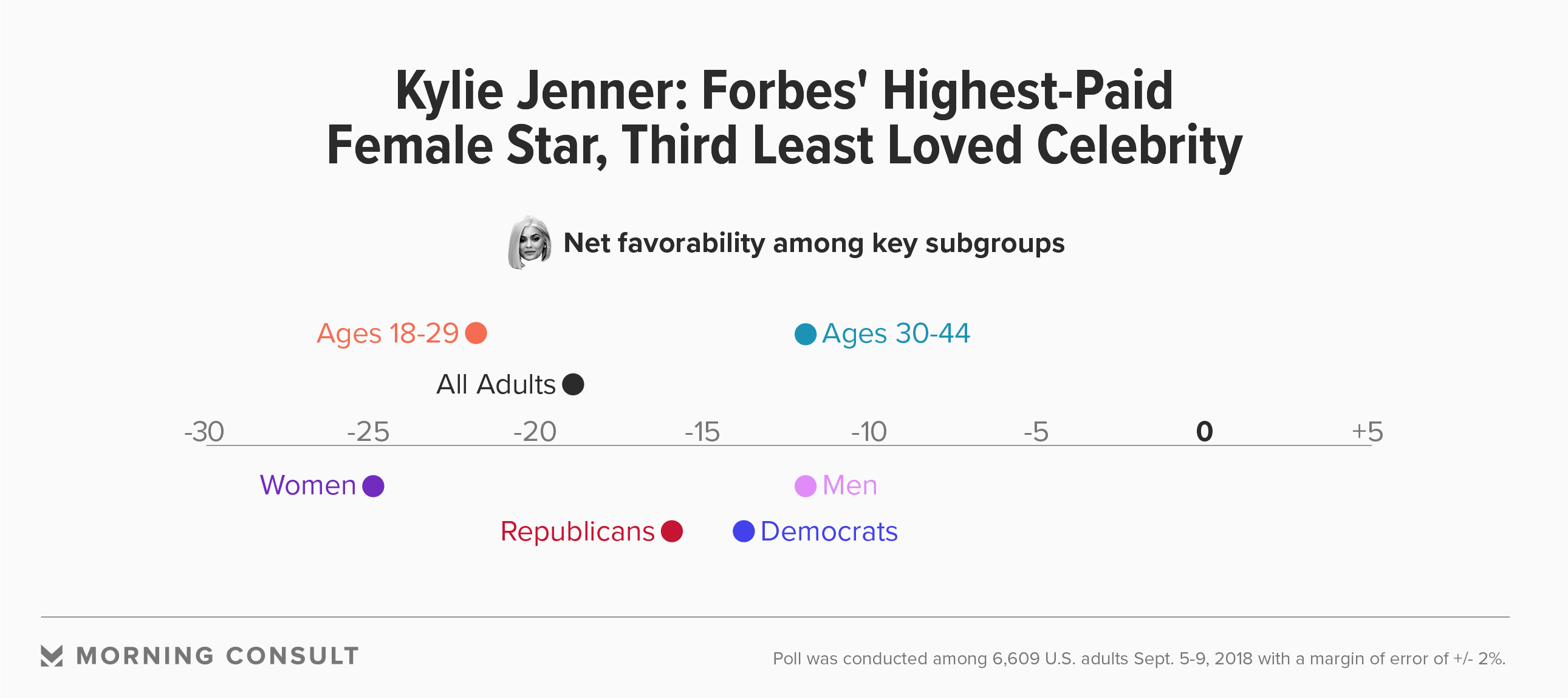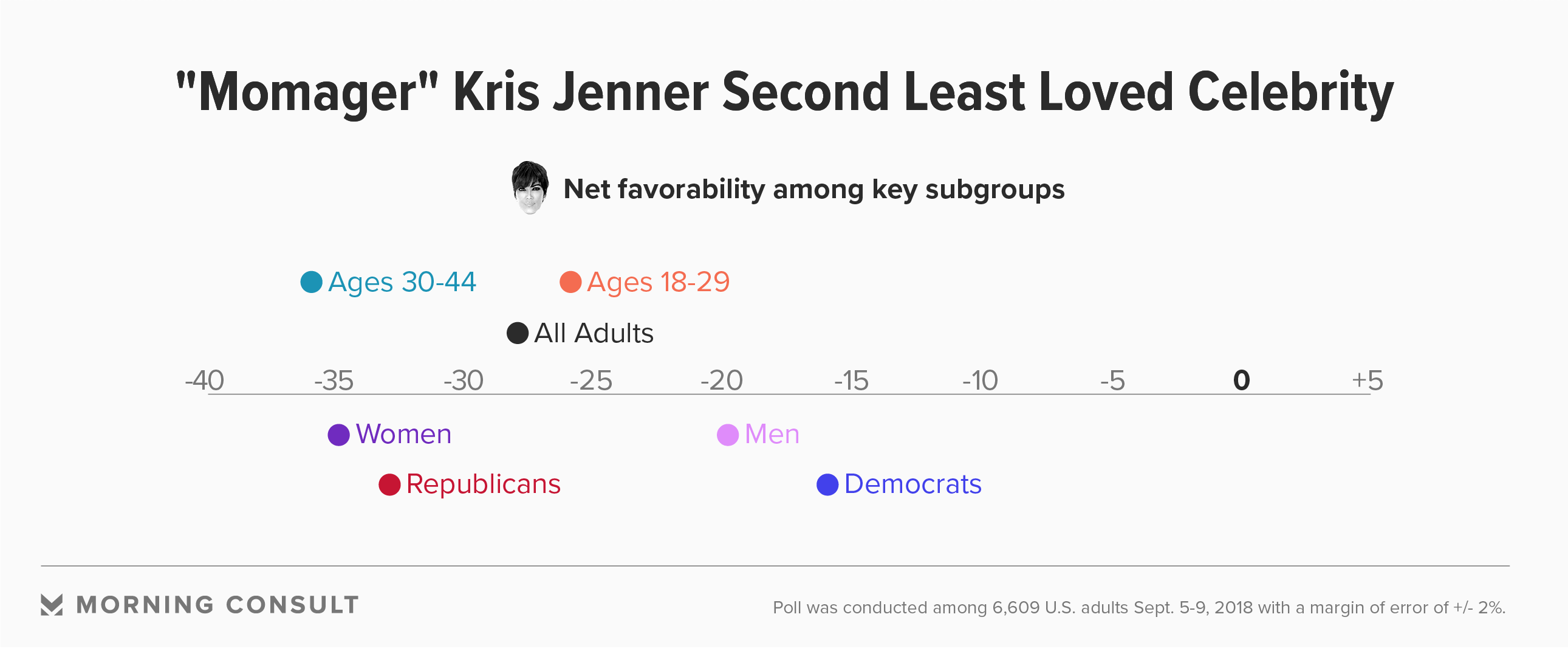Brands Love to Keep Up With the Kardashians. The General Public Doesn’t.

The extended Kardashian clan has a perception problem -- but that’s not preventing brands from partnering with the social media stars to tout products in a way few celebrities can.
Kim Kardashian West, Kylie Jenner and Kris Jenner are the three least-loved stars on Morning Consult’s ranking of the Forbes 100 list. Their average net favorability is lower than controversial figures such as conservative pundit Rush Limbaugh and disc jockey Howard Stern.

Fifty-six percent of U.S. adults have an unfavorable view of Kim, while 27 percent have a favorable view, making her the least-loved Forbes 100 celebrity. Kris’ net favorability rings in at -28 and Kylie, who graced the cover of Forbes Magazine and earned the title of highest-paid female entertainer of the year, has a net favorability of -19.
But industry experts say no amount of general dislike can touch the Kardashian-Jenner clan, as they have built lucrative personal brands and acquired millions of social media fans who eagerly consume the numerous products they promote, differentiating them from other red carpet stars.
“Their follower base is so highly engaged and so enraptured with those individuals that they’ll buy whatever they’re touting,” said Stacy Jones, CEO and founder of the marketing agency Hollywood Branded.
Forbes reports that Kim, Kris and Kylie earned $67 million, $37.5 million and $166.5 million, respectively, between June 2017 and June 2018 -- often from brand partnerships, according to experts.
Kylie’s posts, when shared simultaneously on Facebook, Instagram and Twitter, are worth roughly $924,000 in ad equivalent value within the beauty category, said Frank Spadafora, CEO and founder of D’Marie Analytics, in an interview.

The family’s market power with their fans, often from the coveted demographic of younger women, has led to campaigns with brands such as Calvin Klein, while Adidas, which already partners with sister Kendall Jenner, chose Kylie as its brand ambassador to reboot a 90s sneaker line.
The family’s omnipresence on social media, and use of it as a space to regularly sell their goods and those of others, make them appealing to brands, experts said.
Kim has 118 million followers on Instagram, 59 million on Twitter, and 30 million on Facebook, while Kylie brings in 116 million on Instagram, 26 million on Twitter, and 22 million on Facebook.
“The rise of social media ultimately led to the rise of the influencer,” said Georgina Rutherford, the head of marketing and communications for the digital influencer marketing company IMA.
“Celebrities have become less popular than influencers, and especially micro influencers, as they have become more impactful,” Rutherford said of celebrity-brand partnerships.
The appeal of the Kardashian family, she said, is simple: It’s their social media reach.

Young adults (ages 18-29) favor Kim the most, but her net favorability among the group still rings in a net -7. Kylie’s favorability among young adults is net -22.
When asked specifically whether each celebrity endorsing a brand would make them more likely to purchase the product, a plurality of respondents said Kim, Kylie and Kris as ambassadors would make them less likely to buy, rather than more likely.
Again, young adult consumers were the outlier, with slightly more saying that endorsements from Kim (net +3) would make them more likely to buy a good or service. Kylie’s endorsement power sits at net -6 among young adults.
Outside of partnerships with more mainstream brands, much of the Kardashians’ wealth comes from their own branded lines. Forbes estimates that Kim’s privately held makeup line, KKW Beauty, has brought in $100 million in revenues. And the role-playing app she launched four years ago, “Kim Kardashian: Hollywood,” brought in $8 million in the second quarter of this year alone, according to estimates from Sensor Tower, a market analysis firm.
Those numbers show that the self-made stars such as the Kardashians can draw on their fans’ pocketbooks, Jones said.
“Whether or not they have a negative favorability, there’s a lot of people who really like them a lot,” she said.
Joanna Piacenza leads Industry Analysis at Morning Consult. Prior to joining Morning Consult, she was an editor at the Public Religion Research Institute, conducting research at the intersection of religion, culture and public policy. Joanna graduated from the University of Wisconsin-Madison with a bachelor’s degree in journalism and mass communications and holds a master’s degree in religious studies from the University of Colorado Boulder. For speaking opportunities and booking requests, please email [email protected].
Related content

As Yoon Visits White House, Public Opinion Headwinds Are Swirling at Home

The Salience of Abortion Rights, Which Helped Democrats Mightily in 2022, Has Started to Fade
